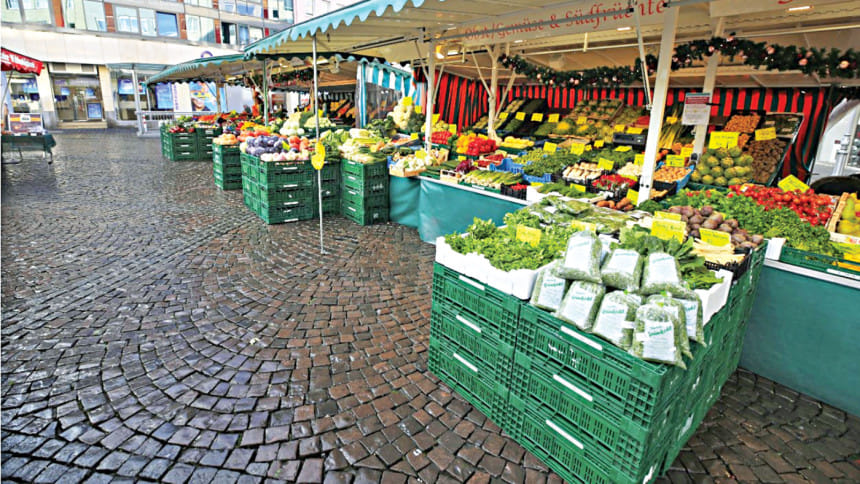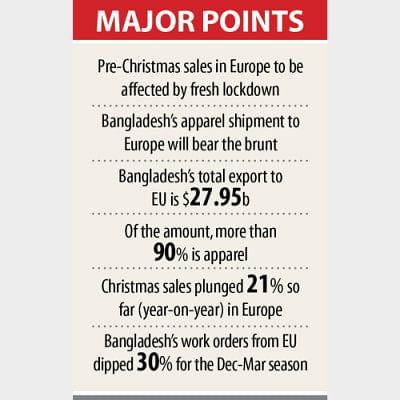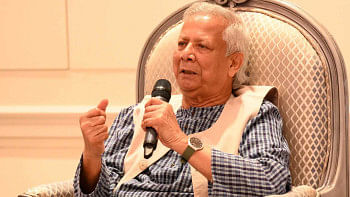Covid restrictions in Europe add to woes of garment suppliers


Lockdowns and tightening of coronavirus restrictions ahead of Christmas in several European countries to tackle the second wave of infections have started adding to the woes of garment exporters in Bangladesh.
Europe is the largest trading bloc for Bangladesh and accounts for more than 60 per cent of the country's exports.
Of the total shipment to the EU, more than 90 per cent are apparel items.
Last fiscal year, apparel shipment stood at $27.95 billion, which was $12.49 billion in FY10.
The apparel shipment has been facing a crisis from the onset of the unprecedented pandemic. Recently, it has started recovering from the first phase of the pandemic-induced shock. But the second wave, which started from September, may nip the early recovery in the bud.
Most of the major export destinations such as Germany, France, Spain, the Netherlands, and Italy have either announced lockdowns or are considering to announce strict measures to restrict the movement of people following a surge of infections in recent weeks.
The Netherlands has entered a five-week lockdown, with non-essential shops, theatres and gyms all closing. Germany enforced a hard lockdown from yesterday after the number of infections hit record levels.
As part of the restriction measures, non-essential shops would remain closed, and garment items fall in this category. The sales in the retail shops in Europe dropped 21 per cent this Christmas compared to that a year ago, according to media reports.
"As Germany, the single largest importing country in the EU, is going into lockdown until January 10, it will only aggravate the negative impact on the exports," said Rubana Huq, president of the Bangladesh Garment Manufacturers and Exporters Association (BGMEA).
"Apparel is a non-essential item, and it will take a nosedive."
With a slight pause, the recurrence of Covid-19 has appeared as "decapitating the already dead", Huq said.
Injured by the first wave, the industry was already bleeding and left to such a disrupted and weakest position that a repetition of a fraction of the magnitude of the first wave may be more intense, she said.
MA Jabbar, managing director of DBL Group, a garment exporter, said the second wave, as well as the lockdowns ahead of Christmas in Europe, had already impacted the shipment from his company.
Although the entrepreneur could manage work orders to a great extent, the prices offered by the retailers and brands are too low.
"We are just running our business and keeping the jobs of thousands of workers," said Jabbar, who mainly exports apparel items to Europe, especially to Germany.
"We will feel the impact, but I am hopeful that by April, the situation will improve a lot as the vaccinations in Europe will hopefully be completed by this time," he said. Currently, he is catering to spring and summer orders.
After the first wave, he recovered well, although there was uncertainty. "I am very optimistic that we can overcome the second wave too," Jabbar said.
The factories with composite production facilities, which can carry out all tasks from making yarn in spinning mills to making shipment of finished garments under one platform, were comparatively less affected, according to the entrepreneur.
"This is why the backward linkage should be concentrated in the country to reduce long lead time with varieties of fabrics. We have done investment in the backward linkage."
Huq said the impact of the first wave was undoubtedly incomparable.
The sector accepted high discounts and delayed payments to clear the cancelled goods, which had its impact on the financial stability of the industry.
Garment price went down by 4.85 per cent year-on-year since September.
The factories had to pay wages and all the regular payments, and forced loans have been created against factories mostly working for bankrupted buyers.
According to a BGMEA study, the garment industry lost $6 billion in export in FY20, meaning that the capacity was seriously underutilised.
The BGMEA did not have an inclusive picture of the real-time cancellation scenario and non-payments. However, a survey of 50 factories shows that instead of cancellation, buyers are following a go-slow approach in placing new orders and factories reported 30 per cent fewer orders.
"This is the picture of the industry, and the situation is worsening day by day," Huq said.
The uncertainty puts the industry in an unpredictable situation and impacts in the area of uncertainty over confirmed business, shipment, allocation of capacity, and they all have an effect on business viability, she said.
The BGMEA chief is staring at tough days ahead.
The repayment of wage-support loans is scheduled to start from January 2021, and the suspension of loan classification will expire by the end of 2020, if not further extended. Other temporary policy supports will also come to an end.
"We need policy support to go over this temporary bump," she said.
She is also hopeful about making a turnaround by the middle of 2021.

 For all latest news, follow The Daily Star's Google News channel.
For all latest news, follow The Daily Star's Google News channel. 



Comments